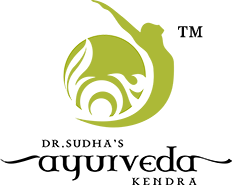
According and Ayurveda, the hridaya (heart) is the place for annarasa (nutrient fluid or essence as a result of food being digested), rakta (blood), ojas (energy), manas (mind), buddhi (instructional force that help the mind make decisions) and athma (spirit). It is the organ that governs all emotions and circulation of blood, to keep an individual healthy and alive. If the heart is in a normal state of functioning, then the individual tends to remain healthy. However, several aspects such as intake of incompatible food (excess oily, spicy, heavy, creamy foods), lack or excess exercise/physical strain, strenuous work, mental strain, mental or emotional stress and sedentary lifestyle cause vikruthavasta (abnormality) in the hridaya. The thickening of arteries (dhamani praticaya) and hardening of arteries (dhamani kathinaya) results in obstruction of blood to the heart, thus leading to hridaya rogas (heart-diseases).
Coronary Artery Diseases
Coronary Artery diseases or Ischaemic heart diseases typically occur due to hardened or clogged arteries (Atheroma and its complication, Thrombosis). These are the most commonly occurring forms of heart diseases and the single most important cause of premature death in the developing and developed world. This group of diseases typically include angina, myocardial infarction, heart failure, arrhythmia and sudden coronary death. Some of the main factors that cause these are age, family history, smoking, hypertension, high blood pressure, lipid disorders, Diabetes Mellitus, sedentary lifestyles and obesity.
Angina Pectoris: Angina is a choking chest pain which results due to exertion and subsides when you give your body rest. This pain in retrosternal and has a tendency to radiate to the arms (specifically left arm), causing discomfort in the arms. It could also radiate to the neck, back or jaw. The pain is characterized by a burning, squeezing, crushing or aching sensation. Apart from pain, one could also face difficulty in breathing, break into cold sweat, feel choked or full, feel nauseous, dizzy, anxious or extremely weak. The pain could aggravate due to emotional outbursts, large and heavy meals and exposure to cold wind.
Myocardial Infarction: Commonly referred to as heart attack, myocardial infarction is caused due to inadequate supply of blood to the heart.It is often described as a tightness, heaviness or constriction in the chest. When the heart receives inadequate blood, it falls short of oxygen and is unable to function normally. Myocardial infarction typically occurs when one or more of the coronary arteries are entirely blocked. The complete blockage severely impacts the supply of oxygen to the heart, causing the heart muscle to get damaged or injured. Angina or chest pain is the cardinal symptom of myocardial infarction. Breathlessness, vomiting, collapse or syncope are also common in this condition. The pain occurs in the same sites as angina but is usually more severe.
Ayurvedic treatments for Coronary Artery Diseases
Nidana Parithyaga
A list of do's and dont's to avoid all causatotion factors
Practice of yoga
Practice of asanas, adoption of breathing techniques, regulation of dietary habits, meditation. Read more
Pizhichil
Massage in which the body is engulfed in warm medicated decoction, oil or ghee according to the patient’s condition. Read more
Urovasthi
Main treatment in which medicated oils, decoctions, ghee etc. are kept in the chest region for a specific time. This is a very effective treatment for asthma, other respiratory problems, all types of heart diseases and muscular chest pain. It also strengthens the overall functioning of the heart. Read more
Shamana Oushadi
Intake of medicines according to the disease
Hypertension
Raktachapa (Hypertension) is defined as persistently high arterial blood pressure. It may have no known cause (essential idiopathic or primary) or may be associated with other diseases (secondary hypertension). Systemic blood pressure increases with age and the incidence of cardiovascular disease (particularly stroke and coronary artery diseases) is closely related. Hypertension occasionally causes headaches, though most patients could remain asymptomatic.
A blood pressure check-up is advisable after every three to four months in adults. In case high blood pressure is detected, it is important to delve into the readings to identify the cause (primary or secondary). Accordingly, one can detect complications, recognize the possibility of cardiovascular diseases and also identify the adverse effects of hypertension on the blood vessels, nervous system, retina, heart and kidneys. Stroke is a common complication of hypertension and may be due to cerebral hemorrhage or infarction. Subarachnoid haemorrhages are also associated with hypertension.
Taking improper (heavy, oily, spicy) food, lack of exercise and sedentary life styles are the main causes of hypertension and heart diseases.
Ayurvedic treatments for Hypertension
Nidana Parithyaga
A list of do's and dont's to avoid all causatotion factors
Shirodhara
Continuous streams of suitable medicinal oils or decoctions (decided based on the condition of the patient) are poured on the forehead to relax and calm the nervous system. Read more
Pizhichil
Massage in which the body is engulfed in warm medicated decoction, oil or ghee according to the patient’s condition. Read more
Sirovasthi
Medicated oils, decoctions, ghee etc. (depending on the patients condition) are kept on the head for a specific time to treat various disorders. Read more
Shiro Pichu
Cotton wool soaked in medicated oil is placed on the forehead to treat the nervous system. It is very effective in treating chronic headaches, hysteria, hallucinations and insomnia
Thalapodichil with medicinal drugs
The patient’s head is covered with medicinal plants paste to treat all types of stress related problems, depression, hypertension.
Share this:
- Click to share on Twitter (Opens in new window)
- Click to share on Facebook (Opens in new window)
- Click to share on Pocket (Opens in new window)
- Click to share on LinkedIn (Opens in new window)
- Click to email a link to a friend (Opens in new window)
- Click to print (Opens in new window)
- Click to share on Reddit (Opens in new window)
